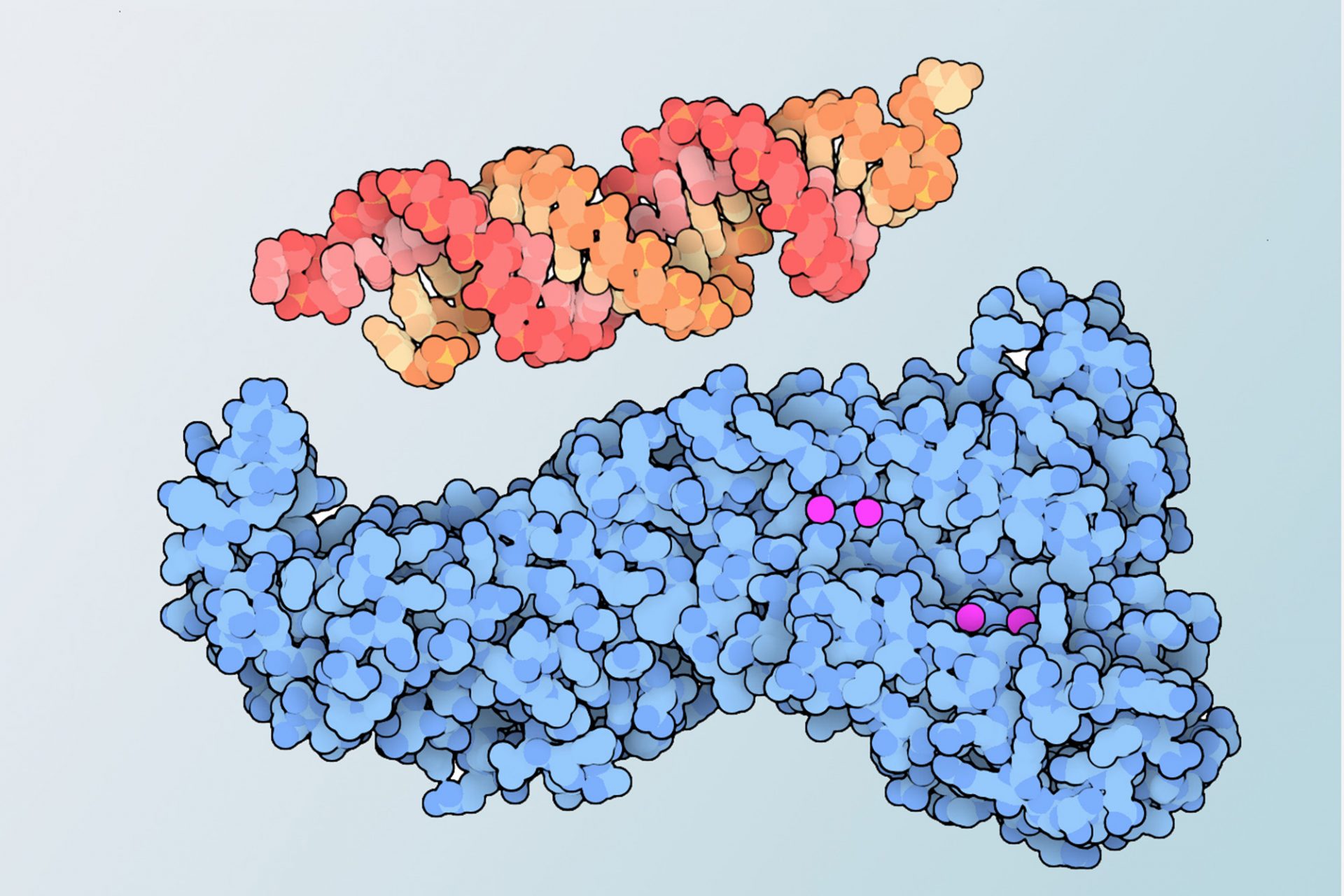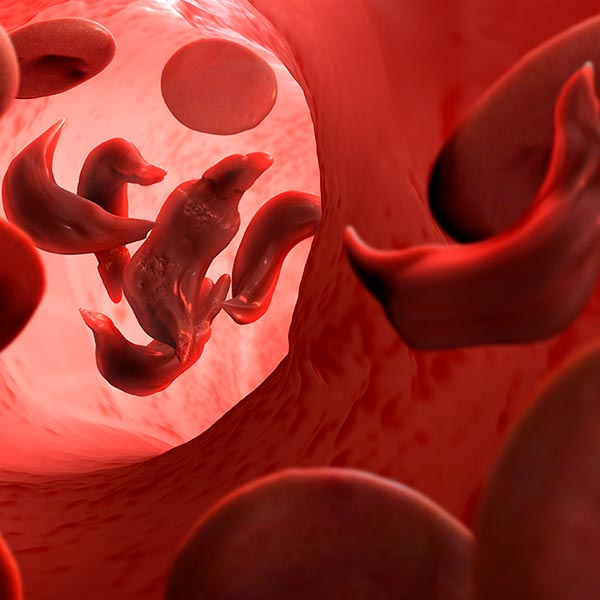PSYCHIATRY
MicroRNA implicated in bipolar disorder
A research team at ETH Zurich has discovered a mechanism behind bipolar disorder.

Small pieces of RNA can have a big impact on organisms. This small piece of RNA (red), together with the protein (blue), is destroying viruses that have entered the cell. | Graphic: PDB-101
Our genetic material plays a decisive role in deciding whether or not we develop bipolar disorder. Many different genes are responsible for this, some of which code for so-called microRNA. These are small snippets of RNA that modulate the production of proteins.
In certain people with bipolar disorder, a research team at ETH Zurich has now discovered a variant in one letter of the genetic code in one of these microRNAs. “It means that the snippet has the wrong shape and no longer functions properly”, says Gerhard Schratt, the study leader.
It is possible that this results in the defective production of a calcium channel that helps to regulate neuronal activity in the brain. Schratt believes that this could contribute to bipolar disorder: “If we can gain a better understanding of the complex mechanisms in the development of the disease, then at some point we will also find a therapy for it”.




